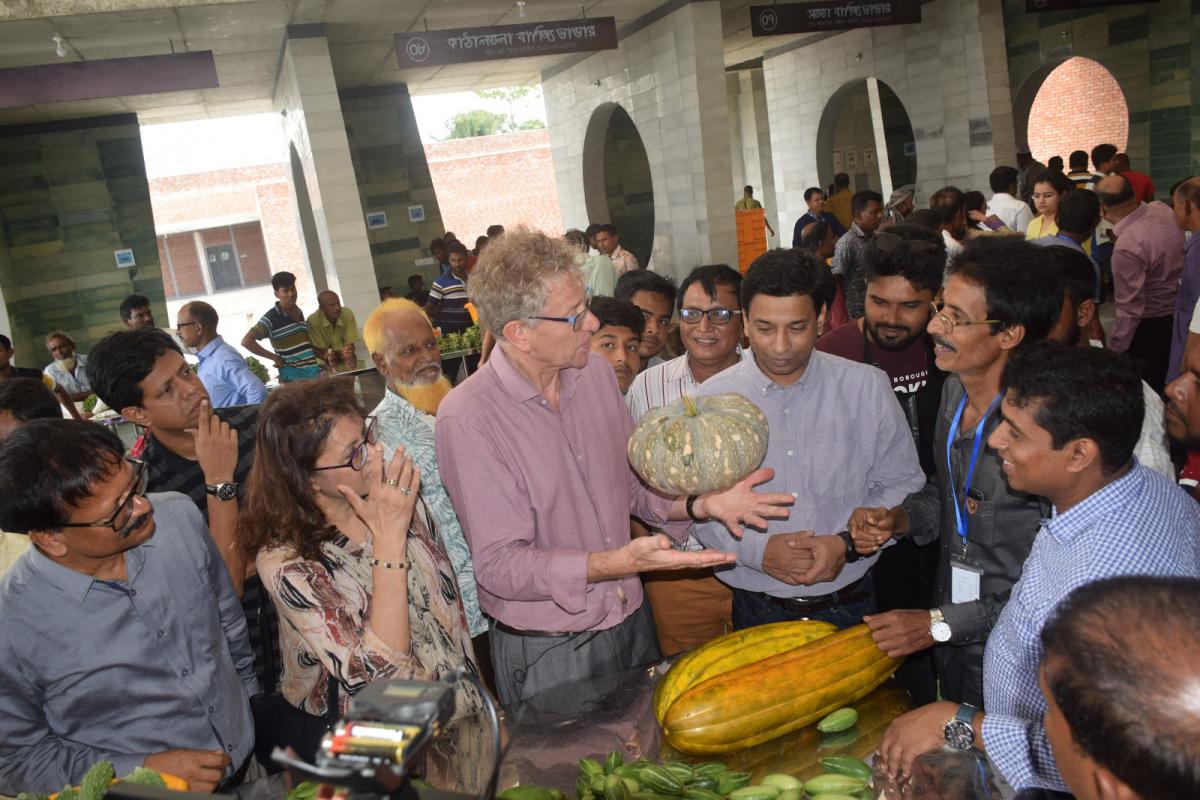
Director Roozen on a tour of the first sustainable Village Super Market
Solidaridad Asia is about to finish the construction of a second Village Super Market (VSM) in the coastal areas southwest of Bangladesh. This was a welcome achievement I was impressed to see only a few weeks after my visit to the region in September for the informal inauguration of the first VSM in Khulna. My stay and meetings with our local team were an inspiring experience. I had the opportunity to gain a close look at the performance of one of Solidaridad’s most long-standing initiatives, the SaFal programme, with the VSM as its cornerstone and most important innovation.
Transforming the food market system is urgently needed to make the food sourcing and supply more robust and efficient. The VSM concept is testing the space for improvements by offering a new marketplace and food business hub that fosters backward and forward market linkages among the producers and traders. The new marketplace connects producers directly with the end market, thereby contributing to productivity and meeting demand for safe and sustainable food from consumers at local and export markets.
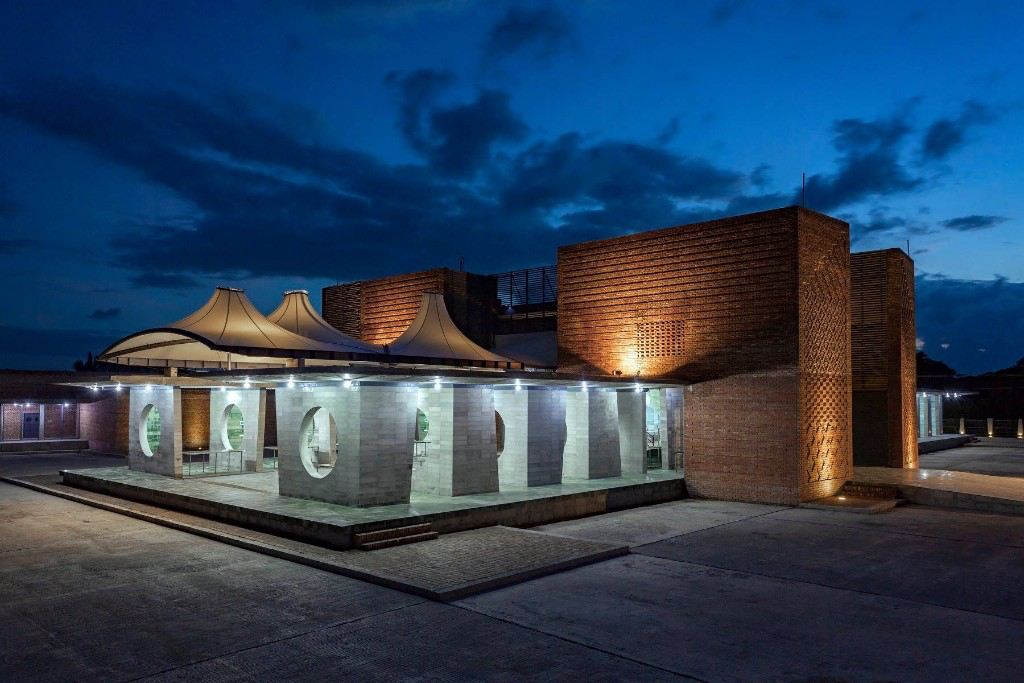
Village Super Market, Khulna, Bangladesh
Established 2018
Pride of the farmer
SaFal stands for sustainable agriculture, food security and linkages and means “successful” in Bangla. The programme is funded by the Dutch embassy and has been ongoing since 2012. It was recently evaluated by IOB, the evaluation department of the Dutch ministry of foreign affairs, in a comparative impact study published in 2018 ranking this Solidaridad programme in the highest category. ‘It is a success story that led to great improvements in agricultural production, household income and food security,’ was the overall conclusion of the report.
In light of the conclusion by external experts, my expectations were already high, but to my surprise, were even exceeded during my visit to the project location. The market building is one of unique beauty, unprecedented in Asia.
It became clear to me that the Village Super Market offers a point of pride for the farmers. For the first time, farmers can sell their produce at a decent outlet equipped with modern technologies to operate and monitor trading that ensures fair prices and product traceability.
The impressive architecture with attention for each detail shows respect for the profession of farming. The Dutch architect Franks Tjepkema's Amsterdam-based studio Tjep along with local architects Vaastukalpa Architects have done a marvellous job. The design and construction is a unique combination of modern creative architecture and state-of-the-art infrastructure and technology. The clear blue colours of one half of the building offers a trading and auctioning place for products from aquaculture and the green part for dairy, fruit and vegetables. The total complex works like a village, with communal functions organized around a pedestrian spine, accessible for all visitors, farmers and merchants alike.
The facility has taken into consideration environmental friendliness and resource-efficiency from planning to construction to ensure its functionality, durability and beauty without compromising on the principles of maintaining food quality and safety. Availability of cold storage units, freezing and ice facilities will reduce post-harvest food waste and losses significantly. Smart agri-market functionalities with digitized automated trading and auctioning facilities ensures transparency of trading and traceability of the products.
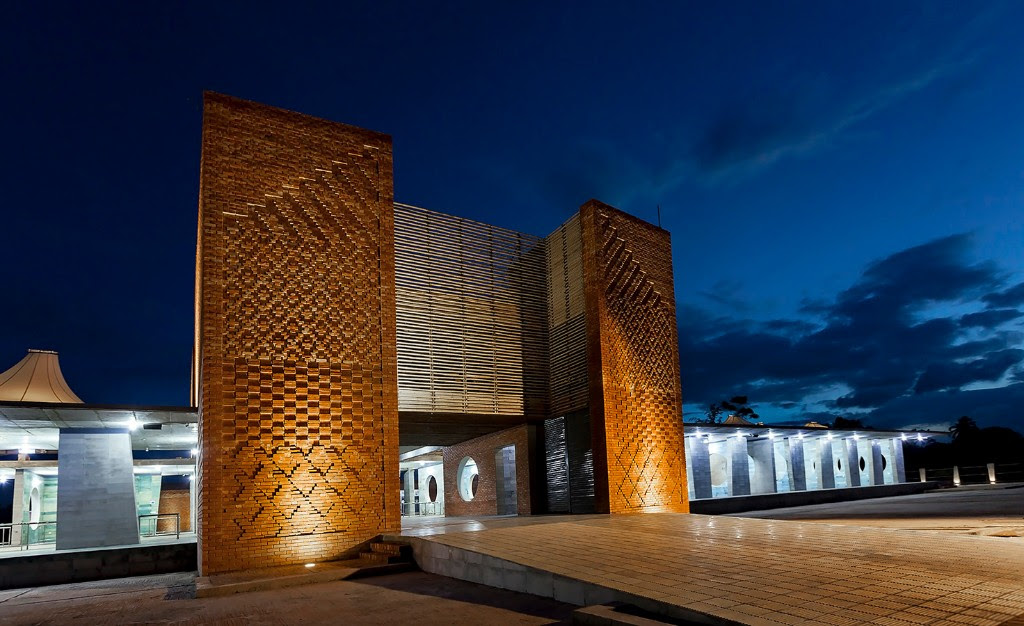
Marketplace 2.0
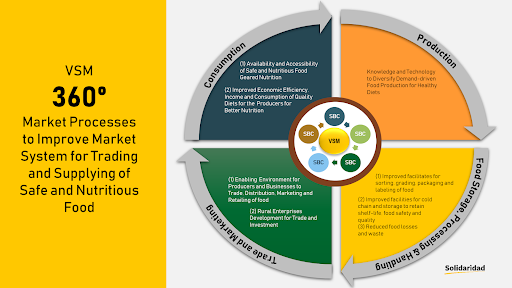
The strategy is for farmers to have a choice in selling their produce to several businesses, which creates bargaining power and opportunity to discover a better price in the VSM. Through digitalization of the entire trading process in the VSM, Solidaridad creates a transparent platform for a mutually trust-based trade by choice. The starting point of intervention is that farmers are given an electronic ID-card. For the first time in their lives, the ID creates a ‘sense of identity’ and belonging, which in itself provides a sense of security and comfort.
Many farmers are also indebted to the traders. To help relieve farmers from the existing debt trap, VSM has partnered with a local bank to provide a third-party banking service within its premise. This will create an option for farmers to negotiate prices at the point of sale. That’s how this concept reinforces formal access to finance.
Coming into contact with examples of positive trading has powerful effects and could revolutionize markets for farmers. The challenge will be to show how this model is replicable and worthy of investment. Our hope is that this model can be taken to other developing countries where market transformation through building robust infrastructures will alleviate the plight of farmers from around the globe.
<a href="https://youtu.be/hPp49YkV8Mg">https://youtu.be/hPp49YkV8Mg</a>
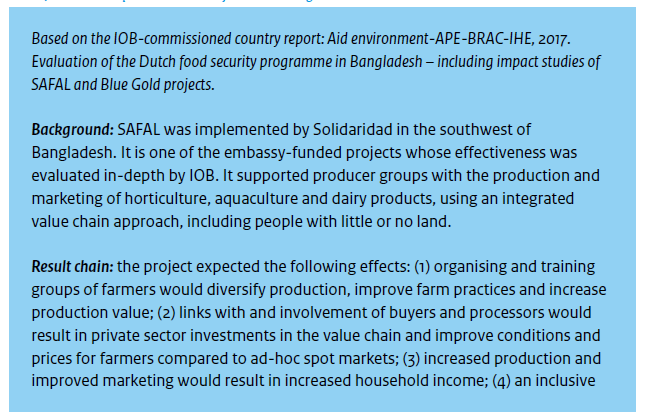
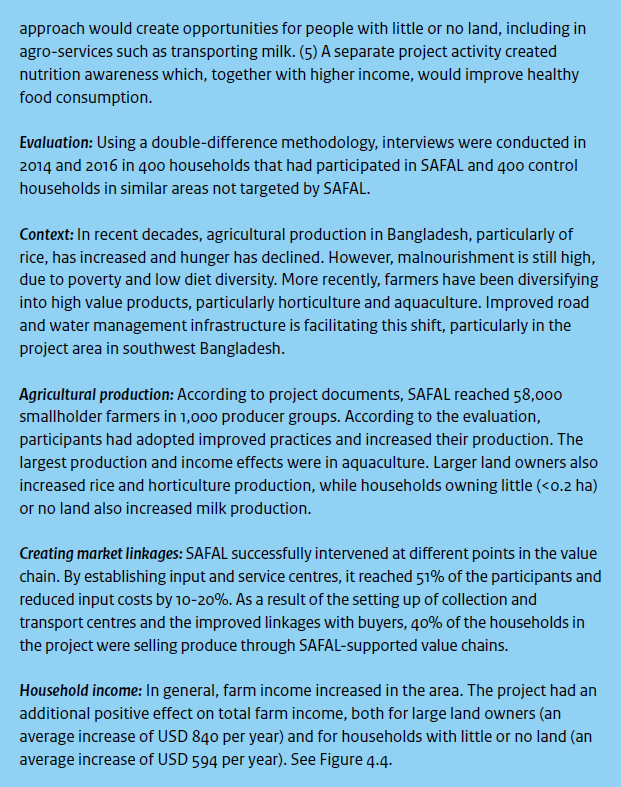
From Impact evaluation SaFal in Bangladesh/ IOB report ‘Food for thought’; Review of Dutch food security policy 2012-2016. Download PDF.
Learn more about Solidaridad programmes in Asia.
